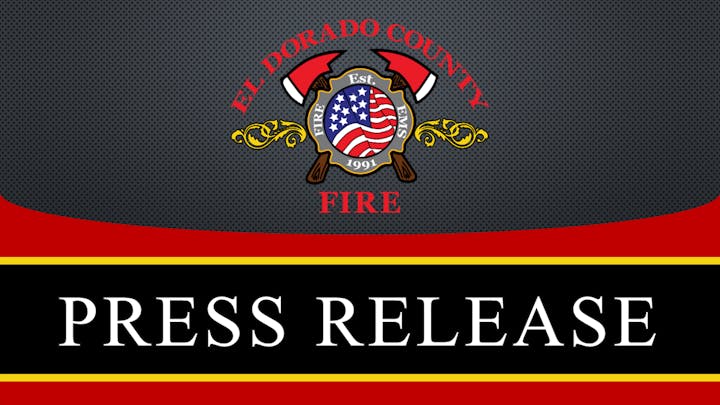First Responder Fee

In July of 2022, The El Dorado County Fire Protection District Board of Directors unanimously approved a First Responder Fee to recover some of the costs of providing emergency medical first responder services to the community.
Frequently Asked Questions:
First Responder Fees are cost recovery to support increasing Emergency Medical Services (EMS) cost for advanced EMS services by first responders, not covered by property taxes. They are permitted under Section 13916 of the California Health & Safety Code.
The current First Responder Fee is:
$294.09
This fee is calculated using methodologies documented in the April 7, 2022 First Responder Fee Analysis found here:
El Dorado County First Responder Fee Report (Final Distributed 6.20.22).pdf
The El Dorado County Fire Protection District Board of Directors unanimously approved a First Responder Fee at the July 21, 2022 board meeting. The ordance was introduced and first read during the June 23, 2022 board meeting. You can find a link to the meeting information here. Here is the ordinance that was adopted:
2022-01 First Responder Fee Ordinance - Approved.pdf
To assist with developing this new First Responder Fee, the District engaged DTA to develop a cost of services (or use fee) analysis (the "Analysis"). DTA prepared this Analysis using the District's operating budget, four (4) years of call data, and operational information provided by District staff to determine the fee level that best suits the District's needs in recovering their expenditures related to providing these services. You can view the First Responder Fee Analysis here:
El Dorado County First Responder Fee Report (Final Distributed 6.20.22).pdf
Yes. The implementation and collection of First Responder Fees has become an industry standard to fund the enhanced paramedic level of service provided by fire district resources and their staffing.
(a) A district board may charge a fee to cover the cost of any service which the district provides or the cost of enforcing any regulation for which the fee is charged. No fee shall exceed the costs reasonably borne by the district in providing the service or enforcing the regulation for which the fee is charged. A district board shall not charge a fee on new construction or development for the construction of public improvements or facilities or the acquisition of equipment.
Local fire agencies have far expanded their original duty of fighting fires and responding to emergencies. Originally, only basic medical services were provided (splints, CPR, etc.). Today, more than 70% of all calls the fire district responds to are for advanced life support, including intubation and the use of defibrillators. The challenge for fire districts is to ensure revenues match the increasing expenses for providing this essential public service. This change in balance from traditional fire suppression to medical services has shifted the rationale for financing fire district operations toward a combination of general fund revenues and user fees, instead of solely from general fund revenues. This combination will create a more sustainable funding source by providing revenues beyond property tax assessments.
The EMS system is built on the concept that there are more fire engines than ambulances available and each patient's care can require multiple personnel to facilitate rapid treatment and transport to a hospital. Time can be a critical factor in early interventions that result in better patient outcomes. Time critical emergencies can include cardiac arrest, respiratory distress, heart attack, stroke, seizures, traumatic injuries, opioid overdoses, and more. Generally, a fire engine will arrive first at scene and begin assessing the patient and implementing treatment procedures. This initial unit has to carry in to the scene all of the necessary medical bags, boxes and cardiac monitors etc. Generally, a lead Emergency Medical Technician (EMT) or Paramedic will begin assessing the patient while a second responder obtains vital signs or assists with setting up initial interventions. A third member will gather information from family members or bystanders to better understand the present condition of the victim, including making lists of medications and gathering patient demographics. An arriving Paramedic ambulance or medic unit, consisting of a driver and an attendant, will assume patient care and transport the patient to the hospital. Due to an older than average population and many patients with other mobility issues such as obesity, it is frequently necessary to physically carry or move a patient to a gurney which can add to the need for additional manpower at the scene. Calls such as cardiac arrest calls require even more manpower to staff positions such as: team leader, compressor(s), airway manager, AED/Monitor/Defibrillator, IV/IO medications provider, and time recorder. Occasionally fire engine EMTs or Paramedics will accompany the medic unit to the hospital in order to provide assistance with critical patients. Fire engines will try to become available for other emergencies as soon as possible. Other emergencies such as fires, vehicle accidents or EMS incidents have an unpredictable frequency and fire engines need to be available to quickly respond. El Dorado County Fire Protection District fire engines carry Basic Life Support (BLS) and Advanced Life Support (ALS) medical equipment similar to what is carried by a medic unit.
You have received this bill because the El Dorado County Fire Protection District responded to a 9-1-1 call from you or someone representing you and a medical assessment was performed.
First Responder Fees are fully or partially covered by most medical insurance carriers. If you receive a First Responder Fee bill, use the contact information provided on the invoice to submit your insurance information for billing.
If you have received an invoice, please use the contact information provided on the invoice to submit your insurance information. If you do not have insurance, use the contact information provided on the invoice to let our billing service know.
Pre-hospital care is considered to be a critical component of the healthcare system, saving lives. Most medical insurance carriers cover First Responder Fees.
El Dorado County Fire Protection District has a compassionate billing policy that allows the waiver or reduction of the fee due to financial hardship.

